The Managing Editor for the Ubyssey, UBC’s student newspaper, reported in a feature article in this morning’s issue on the Chan v UBC and others racial discrimination case to be heard by the British Columbia Human Rights Tribunal (BCHRT) this summer. Jonny Wakefield reports:
The threshold to dismiss a complaint at the BCHRT is low. Since 2006, it appears that no cases against UBC have gone to a full judicial hearing. But one professor’s complaint has survived numerous attempts by the university to have it thrown out. The hearing, scheduled this summer, will be one of the very few times that the university has had to deal with a complainant in a public forum.
That discrimination complaint came from Jennifer Chan. Chan is an associate professor in the Faculty of Education. In May 2010, she filed a complaint of racial discrimination with the BCHRT, naming the university and four employees—among them senior administrators—as respondents. Chan, who is Chinese Canadian, alleges she was not selected for a prestigious research chair in part because of her race.
That appointment was to the Lam Research Chair in Multicultural Education. Chan was shortlisted for the chair in October 2009 and when it was announced that another candidate—a white woman—was given the appointment, Chan started to make complaints about bias in the process.
In short, Chan said the search committee of five members from the Faculty of Education broke every hiring rule in the book. It failed to keep any records of its procedures, including how the search was conducted and what criteria were used to determine merit. The committee also failed to consult Chan’s references, which included former Lam Chair holders. The Ubyssey contacted Chan’s references independently and confirmed that they had not been contacted regarding her application.
“A lot of my students would ask for references for their part-time summer jobs,” she said. “This endowment chair is a very prestigious position. Why were external references not contacted? Was it because the candidate was predetermined? Or was it because of some other factor?”
One of those factors, she argues, was her race.
See Ubyssey 15 March 2012 pp. 6-7 for more, and BCHRT for decision to hear the Chan v UBC and others [Beth Haverkamp, David Farrar, Jon Shapiro, Rob Tierney] case.

 Follow
Follow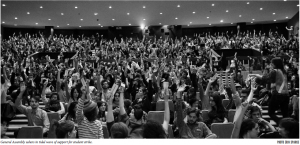
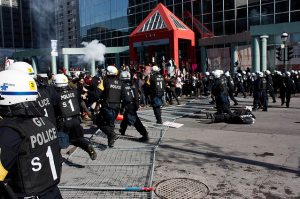
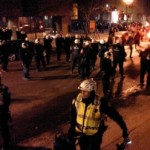
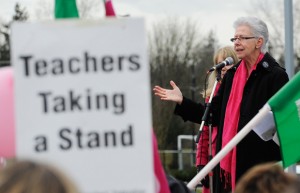
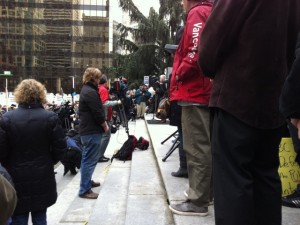
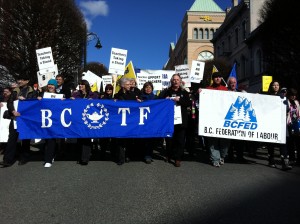
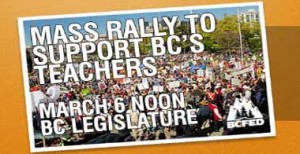
Net Zero Workers
There is a long history of wage freezes for workers that amount to wage cuts against rapidly rising costs of living. There was a time when governments were interested in supporting unions defending wages as a base for fair compensation for the work and a wage increase to maintain a decent standard of living against rising costs. In bad times, unions and employers could give and in depressions the unemployed ranks grow, families collapse, and businesses fold. Currently, governments are finessing to have it both ways. A psychology of governing parties is to assure consumers and investors that the economy is always looking up while convincing workers that the coffers are empty and the economy is recessing. While Athens burns business analysts comment daily that the markets are gaining lost ground. ‘Economic growth is on the horizon while we are pressed to freeze wages and put our fiscal house in order.’ Mixed messages for the consumer as worker, now the net zero worker.
“Net zero,” newspeak for wage freeze, was introduced as a mantra in about 2002 and repeated by the Public Sector Employers’ Council (PSEC) in British Columbia from 2008 to this current point. In 2010 the “net zero mandate” was reinforced in BC government or PSEC policy. Public sector workers were again net zero workers. The BCTF rallied hard against this and are standing up again to pool together all unions, as the governing party in BC again designated teachers as net zero workers. Let them bargain, let them mediate, Minister of Education George Abbott insisted in legislative debate on 12 March, as long as “all of that is within the context of net zero.”
Thirty years ago, top executive salaries were about 15 times that of the average worker’s. Now, those executive salaries are 75 times that of the worker’s. It’s increasingly difficult to accept one’s fate as a net zero worker in the face of skyrocketing executive salaries and lawless mismanagement. Of course, things might change should the net zero worker threaten to become a net zero consumer. Net zero spending was once called a boycott.
10 Comments
Posted in BC Education, Commentary, Employment rights, Government, Politics, Solidarity, Strikes & Labor Disputes, Unions, Working conditions
Tagged Economic Trends, Government, Working conditions